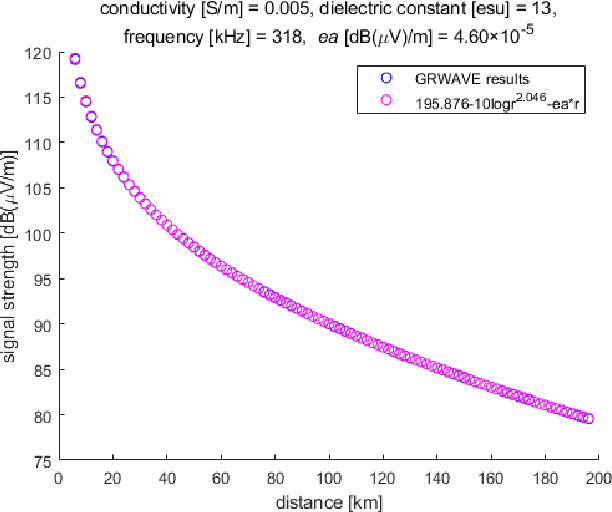Jaewon Yu
Empirical Modeling of Variance in Medium Frequency R-Mode Time-of-Arrival Measurements
Sep 01, 2023Abstract:The R-Mode system, an advanced terrestrial integrated navigation system, is designed to address the vulnerabilities of global navigation satellite systems (GNSS) and explore the potential of a complementary navigation system. This study aims to enhance the accuracy of performance simulation for the medium frequency (MF) R-Mode system by modeling the variance of time-of-arrival (TOA) measurements based on actual data. Drawing inspiration from the method used to calculate the standard deviation of time-of-reception (TOR) measurements in Loran, we adapted and applied this approach to the MF R-Mode system. Data were collected from transmitters in Palmi and Chungju, South Korea, and the parameters for modeling the variance of TOA were estimated.
Simulation of Medium-Frequency R-Mode Signal Strength
Oct 01, 2022

Abstract:Assuming failure in the global navigation satellite systems due to radio frequency interference and ionospheric anomaly, an R-Mode system, a terrestrial integrated navigation system, is being actively studied for domestic deployment in South Korea. In this study, parameters for an approximate calculation of the received signal strength were obtained and applied to develop a performance simulation tool for a medium-frequency R-Mode system. As a case study, the signal strength from the Yeongju transmitter was simulated using the proposed parameters.
 Add to Chrome
Add to Chrome Add to Firefox
Add to Firefox Add to Edge
Add to Edge